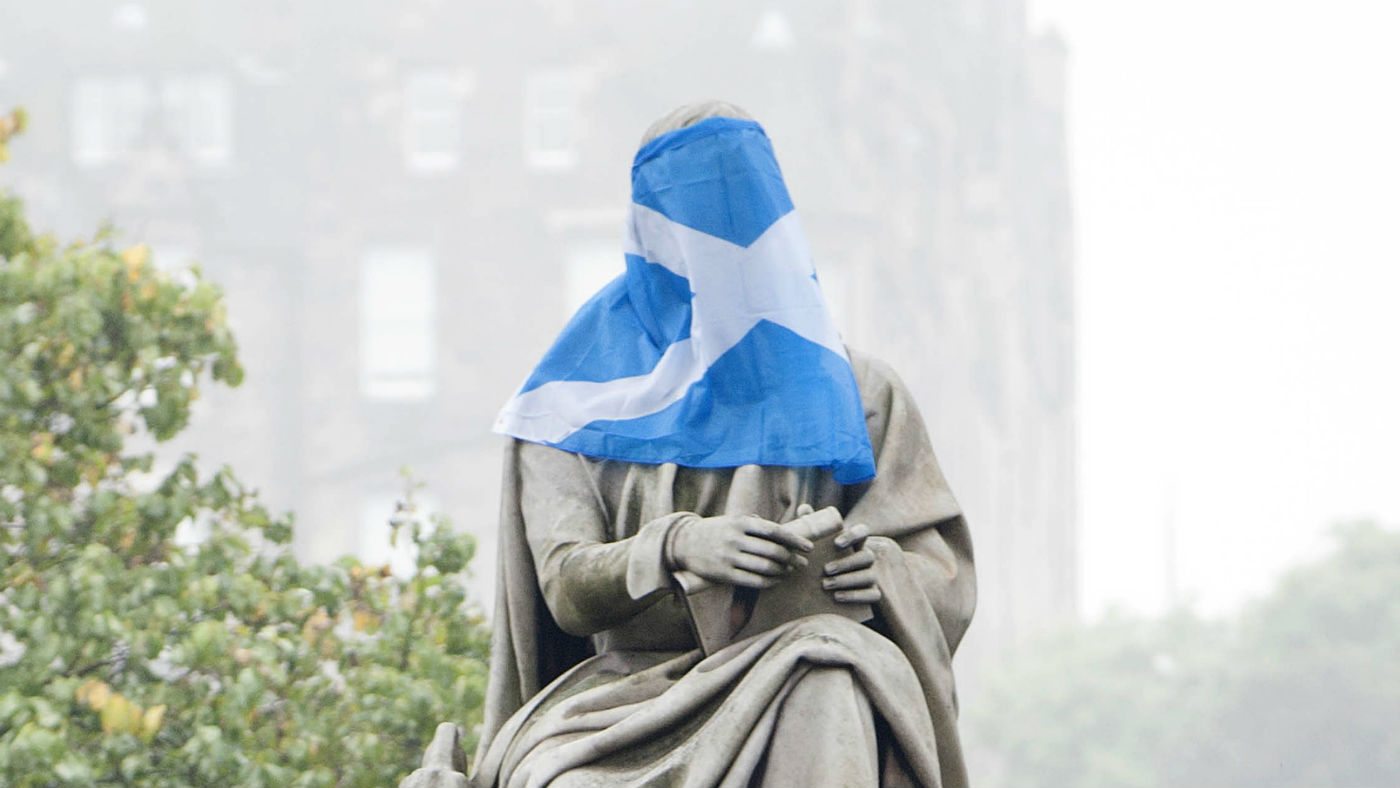Scottish independence: Budget deficit raises £13bn question
A massive black hole in the Scottish finances has been seized upon by unionists

A free daily email with the biggest news stories of the day – and the best features from TheWeek.com
You are now subscribed
Your newsletter sign-up was successful
New figures on Scotland's massive budget deficit have been seized on by unionists as proof the country cannot afford to go it alone.
The deficit now stands at £13.3bn, or 8.3 per cent of GDP, more than three times the overall UK figure of 2.4 per cent. Although down slightly from last year, it is still higher than in any EU member state and double the deficit of Spain, the next highest.
The crash in the price of oil is largely to blame for the size of the shortfall. Last year, Scotland's projected oil revenues amounted to just £208m - a far cry from the £7.9bn predicted by the Yes campaign before the 2014 independence referendum, when oil prices were at their peak.
The Week
Escape your echo chamber. Get the facts behind the news, plus analysis from multiple perspectives.

Sign up for The Week's Free Newsletters
From our morning news briefing to a weekly Good News Newsletter, get the best of The Week delivered directly to your inbox.
From our morning news briefing to a weekly Good News Newsletter, get the best of The Week delivered directly to your inbox.
Pro-Union parties said the statistics showed an independent Scotland would have faced "unprecedented" levels of austerity and accused the SNP of "deception" ahead of the vote three years ago.
The figures will also reignite the question of why Scotland receives more per head in government spending than anywhere else in the UK.
Last year, the country contributed eight per cent of UK tax but received 9.3 per cent of spending. Total public sector revenue raised in Scotland was £312 per person below the UK average, while expenditure was £1,437 higher.
The University of Strathclyde says this is because Scotland spends more on devolved services, like health, education and economic development, and has higher spending on some key welfare programmes.
A free daily email with the biggest news stories of the day – and the best features from TheWeek.com
Either this shows that an independent Scotland would be running a huge deficit, "forcing the government at first to borrow heavily, and then to cut spending and/or raise taxes", says the��BBC's Douglas Fraser. Or it "shows what you get from being inside the UK, with relatively low tax take".
"From that pro-independence perspective," he adds, "it is not a measure of how Scotland would fare, but how it has fared without power at Holyrood."
In the pro-independence newspaper The National, George Kerevan argues that "without independence, Scotland lacks the ability to break the control over investment flows exerted by big firms and international banks" and reshape the economy in its favour.
Scotland's First Minister Nicola Sturgeon has made a similar case. The Guardian reports her argument that "since her devolved government did not have full control over taxation and UK economic policy, the UK government and supporters of the UK needed to explain why Scotland's economy was comparatively weaker".
But yesterday she acknowledged that "Scotland's economy has challenges" and the deficit should be "reduced to sustainable levels".
What does this mean for independence?
The Financial Times says Sturgeon has "sought to play down the significance of the data for her independence cause" by saying it reflects Scotland's finances "under current constitutional arrangements" and adding that "Scotland's economy remains strong".
Despite repeated warnings from nationalists about of the threat posed by Brexit to the Scottish economy, the "black hole means the risks of independence remain immense", says George Eaton in the New Statesman.
While many Scots remain pro-EU and aware of the dangers of a hard Brexit, for a large number, "this is merely cause to avoid the added turmoil of independence", says Eaton. Although eventual EU membership would benefit Scotland, he says, its UK trade is worth four times as much as that with Europe.